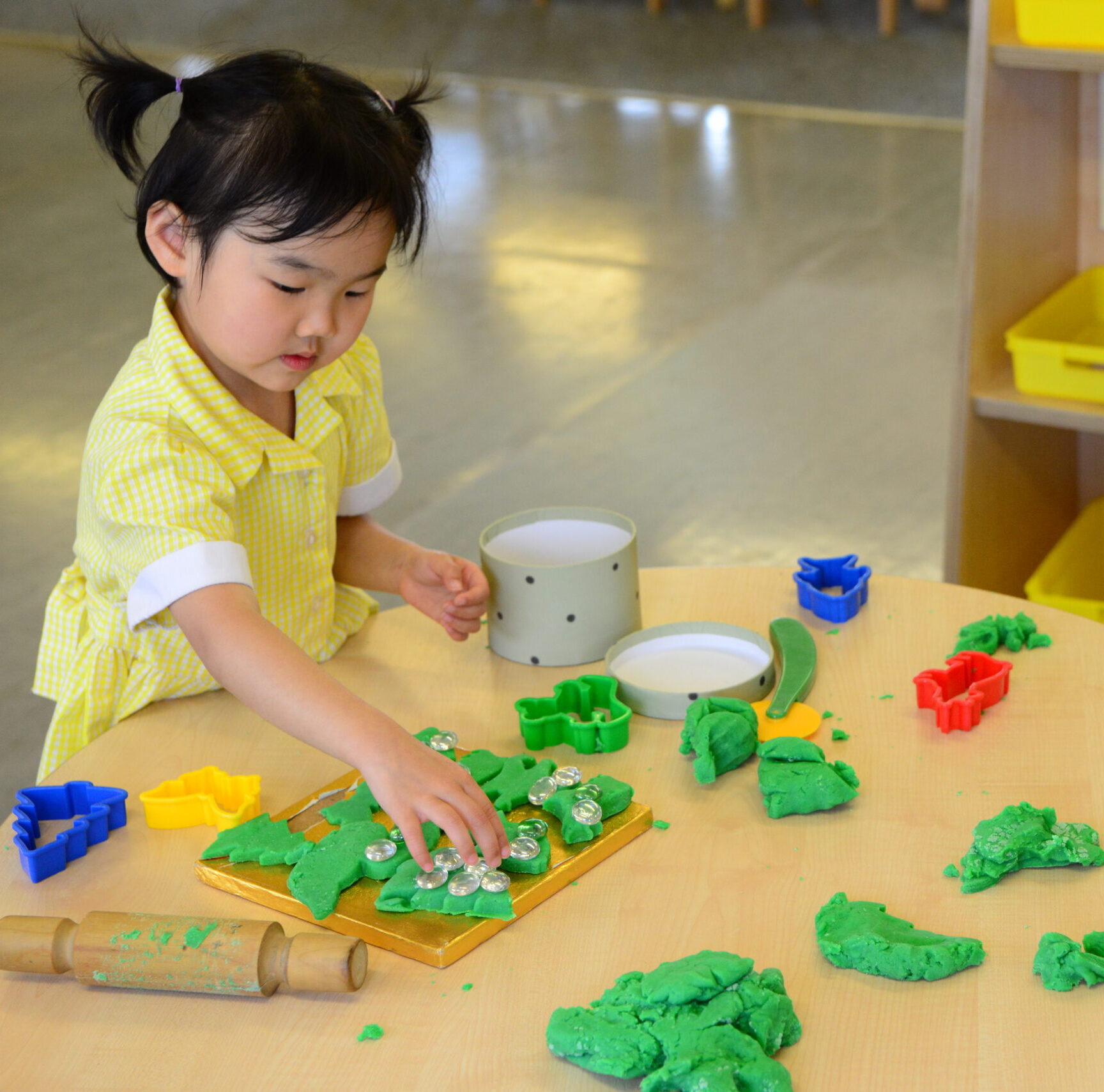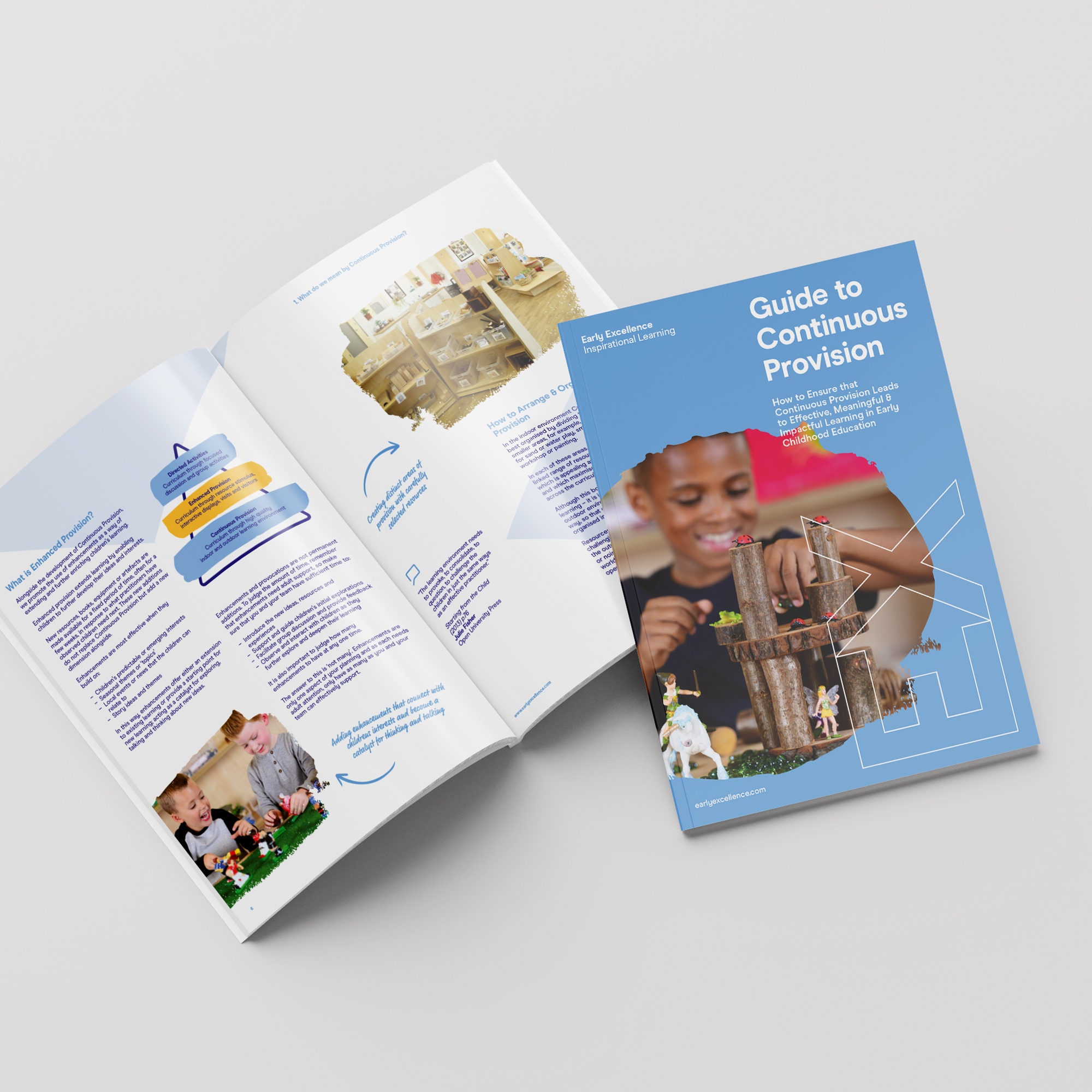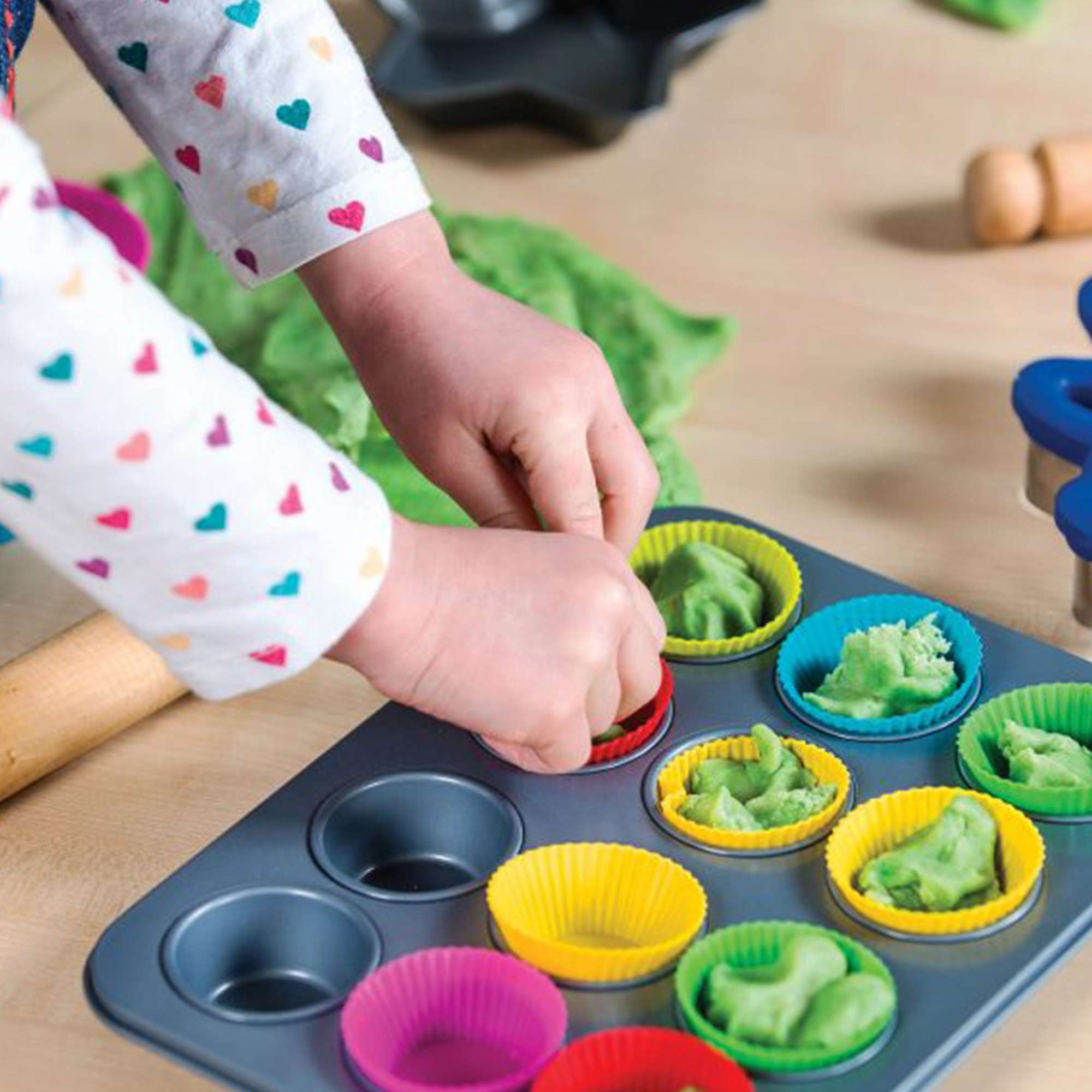In the Early Years, creating a stimulating and engaging learning environment is crucial for young children’s development. From experience, one of the most popular things to do in the EYFS classroom is to explore with dough. The dough area is often a hive of activity. Children love the tactile sensations that dough offers, the creativity they can bring to the dough area and they are encouraged by the familiar nature of dough – it ties in with young children’s natural interests such as baking or pattern making for example. It offers a wide range of benefits, ranging from: enhancing children’s creativity and imagination, fostering collaboration and encouraging talk, physical development including a focus on fine motor skills, and developing children’s confidence to take on a role in their play, amongst many others.
Despite its popularity with young children and the wide variety of experiences dough offers, it is not always given the status in the EYFS classroom that it perhaps deserves. More often than not, dough is offered up as a group activity, something that happens perhaps with music for 10 minutes of the day. It’s sometimes seen as a fine motor skills ‘intervention’, rather than something that is a natural interest for all children. Occasionally it is included as part of provision, but not necessarily offered as a full continuous provision area. It may be rotated alongside other malleable play, or perhaps added in as an enhancement now and then into another area of provision. But dough offers so many benefits to young children’s learning and development that we should really stand back and consider the benefits of making dough a permanent area of provision in our classrooms.
Enhancing Creativity and Imagination
A dough area is a haven for sparking creativity and imagination in young learners. The malleable nature of dough allows children to sculpt, shape, and design various forms, encouraging them to envision and bring their ideas to life. From creating imaginary creatures to building miniature worlds, the possibilities are endless. The freedom to explore and experiment fosters a sense of wonder and nurtures their creative thinking.
Fostering Collaboration and Conversation
When children engage in the dough area, they naturally come together, sparking collaboration and conversation. A round table in this space creates a communal setting, encouraging children to interact, share ideas, and work collectively on projects. These interactions foster social skills, promote effective communication, and teach children how to listen and respond respectfully to their peers.
Developing Fine Motor Skills and Dexterity
Manipulating and sculpting dough requires precise hand movements, thus aiding in the development of fine motor skills and dexterity. Pinching, rolling, flattening and cutting the dough refine their hand-eye coordination and muscle control. Rolling the dough also requires full upper body movement, exercising the core muscles and the shoulders as well as strengthening the elbow and wrists. These motor skills are fundamental for future writing, drawing, and other intricate tasks.
Encouraging Roleplaying and Imagination
The dough area provides an excellent platform for roleplaying, allowing children to act out scenarios from their everyday lives. Whether it’s mimicking baking in a kitchen or celebrating a birthday party, the dough becomes a versatile prop for their imaginative play. Roleplaying aids in understanding social roles and helps children make sense of the world around them. Consider adding books into your dough area to ignite children’s imaginations to make links to their familiar world.
Setting Up an Effective Dough Area
To create an optimal dough area within an EYFS classroom, several factors should be considered:
- Adequate Space: Ensure the dough area is spacious enough to accommodate several children comfortably, allowing them to work and play freely. It should also be big enough for adults to get into this space to model and interact.
- Round Table: Incorporate a round table to promote conversation and collaboration, allowing children to engage with one another while shaping their dough creations.
- Stools vs Chairs: Using stools in this area rather than chairs will allow children the flexibility and movement to really roll, sculpt and create. It will also support their gross and fine motor development.
- Thoughtful Resource Selection: Curate a diverse range of resources that align with the skills you aim to develop. These should also resonate with children’s natural interests, such as making marks, moving their bodies, and exploring familiar concepts like baking and celebrations.
- Engaging Resources: Offer resources like cutters, stamps, textured rollers, and other tools that encourage creativity and variety in their dough projects.
So, if you currently have a dough area, you may wish to reflect on its effectiveness.
- How often is it used?
- What do children tend to do in this space?
- Are you clear on what you want children to develop within the dough area and do you plan for this?
If you don’t yet have a dough area, we would really encourage you to consider creating one, for all the reasons listed above. When developing this area, consider the space and resources on offer to children:
- Have you thought carefully about the resources you offer and why?
- Do they offer open-ended possibilities?
- Do they link to children’s natural interests?
- How will you plan for this space?
Find Out More

Explore our Inside Out pack of support materials for the Dough Area with practical advice, training videos and inspiration to help you make the most of your dough provision.

Our Guide to Continuous Provision is packed with detailed advice and also contains a full set of continuous provision planning guides for you to use and adapt. We also have sample guides to download.

Download a free copy of our Dough, Water & Sand audit tool to help you identify strengths and areas for improvement and curate a diverse range of resources that align with the skills you aim to develop.

